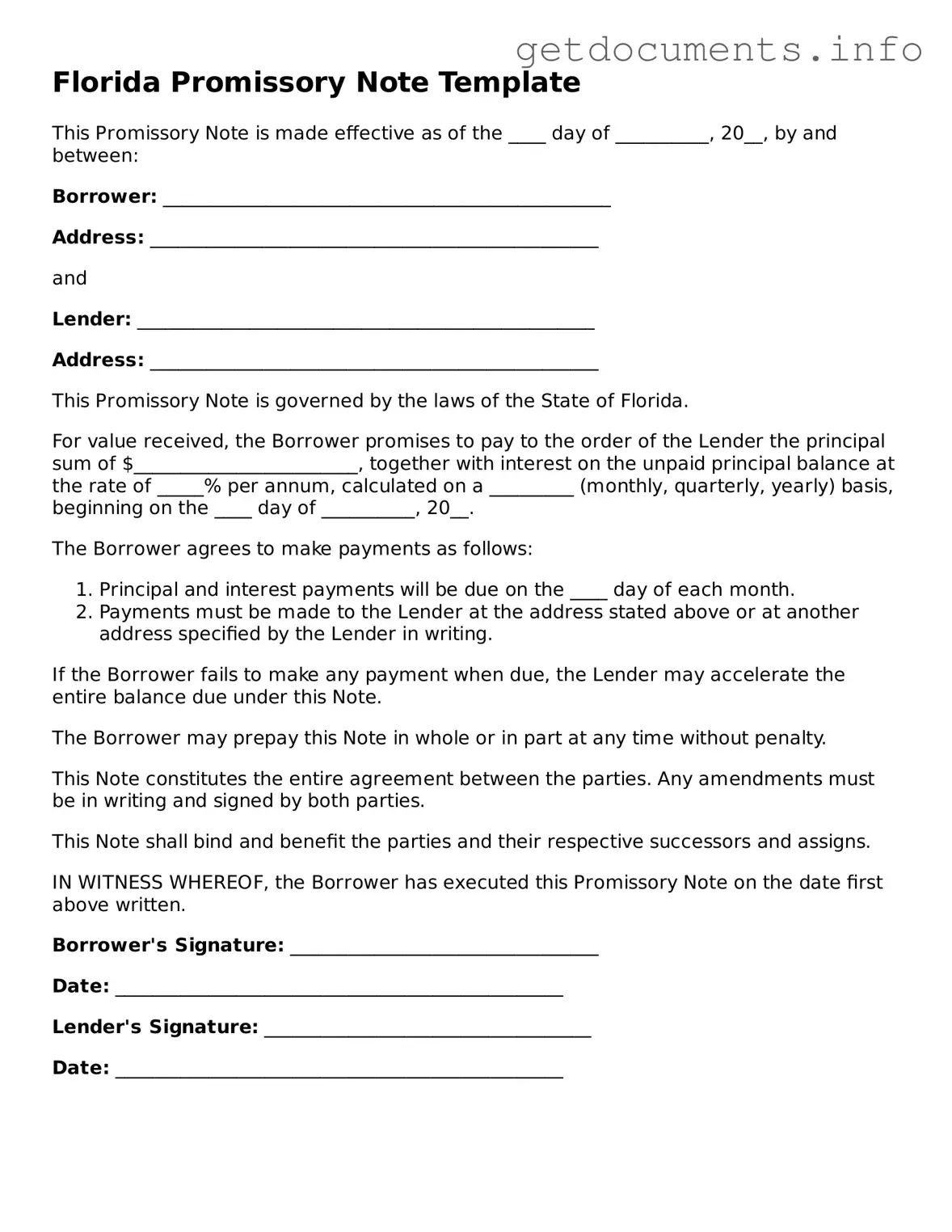Free Promissory Note Template for Florida
A Florida Promissory Note is a legal document that outlines a borrower's promise to repay a loan to a lender under specified terms. This form serves as a crucial record of the loan agreement, detailing the amount borrowed, interest rates, and repayment schedule. To get started on your loan agreement, fill out the form by clicking the button below.
Access Promissory Note Editor

Free Promissory Note Template for Florida
Access Promissory Note Editor
Got places to be? Complete the form fast
Fill out Promissory Note online and avoid printing or scanning.
Access Promissory Note Editor
or
⇩ PDF File
